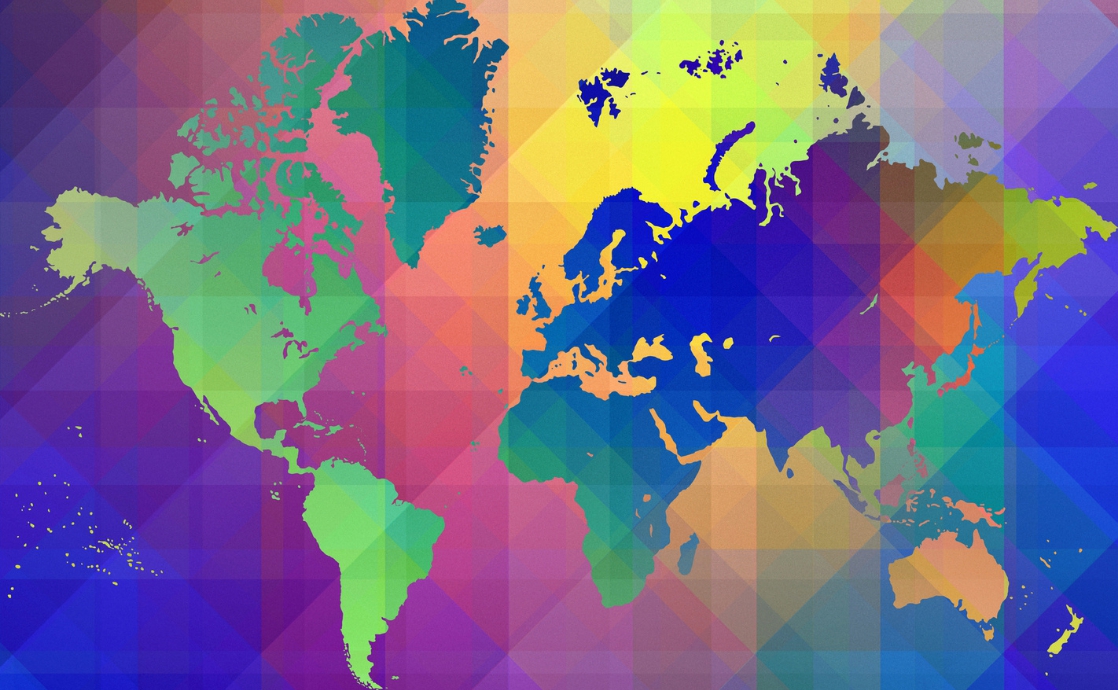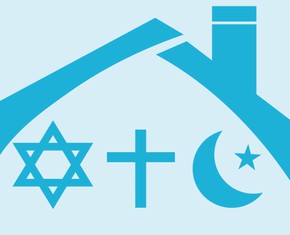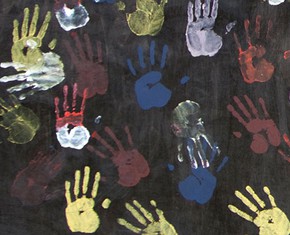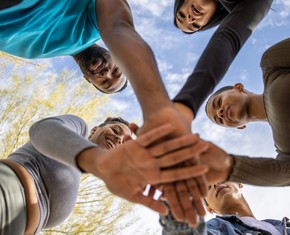The views expressed in our content reflect individual perspectives and do not represent the authoritative views of the Baha'i Faith.
Although written in the 19th century, these famous lines might just as well be contemporary, because they capture our global civilization at its present stage of development:
It was the best of times, it was the worst of times, it was the age of wisdom, it was the age of foolishness, it was the epoch of belief, it was the epoch of incredulity, it was the season of Light, it was the season of Darkness, it was the spring of hope …
These opening lines introduce one of the most famous pieces of literature in the English language: A Tale of Two Cities. Written in 1859 by Charles Dickens, it pertains to the relationship of England and France during that period, and focuses on social justice and the resurrection of society.
Doesn’t our reality right now represent both the best and worst of times on a global scale? These are certainly complicated times, and while an in-depth look at any of the issues of the day goes beyond the scope of this short essay, let’s consider just a few negatives and positives.
RELATED: No Unity, No World Peace
The Baha’i writings promise the emergence of a future society based on peace, justice, equity, and love for one another regardless of race, religion, or national origin. Abdu’l-Baha, the son and designated successor of Baha’u’llah, the prophet and founder of the Baha’i Faith, wrote:
It (divine civilization) is to be and shall be organized, and the oneness of humankind will be a visible fact. Humanity will then be brought together as one. The various religions will be united, and different races will be known as one kind. The Orient and Occident will be conjoined, and the banner of international peace will be unfurled. The world shall at last find peace, and the equalities and rights of men shall be established.
Other faiths envision such a future as well. In the one prayer, Jesus prophesized: “Thy Kingdom come, Thy will be done, on earth as it is in heaven.” The Old Testament has prophecies of the day when swords shall be beaten into ploughshares and the lion and the lamb will lie down together — symbolic images of the day when traditional enemies live in peace.
But how do we get there? We still live in a world far from these ideals. A glance at the news reveals stories of racial injustice, environmental degradation, climate change, threats of conventional and nuclear war, extreme nationalism, growing gaps between rich and poor, pandemics, and many more distressing developments. Obviously, many barriers must be overcome before humanity reaches a world civilization as envisioned by the Baha’i revelation.
Despite these serious challenges, many positives also exist. Science and the development of advanced technologies have made amazing progress in the last 150 years. The world has grown “small” as travel has become fast and easy. Communications throughout much of the planet are as simple as a phone call or a few clicks on a computer. All of this has led to a growing awareness of art, music, culture, and the commonality of peoples throughout the world. Likewise, in the field of energy, new material and engineering discoveries lead to the generation of electricity using solar, wind, hydro and other sustainable and non-polluting forms of power. Scientific discoveries in medicine, agriculture, genetics, diet, and the environment have and will continue to improve the quality of life for billions. In 1850 the average U.S. life span of a person ranged from 35-40 years old; today it is near 80!
When it comes to human relations, no doubt we have a long way to go to overcome institutional racism, overt and subtle forms of prejudice, and ongoing inequality in education, judicial, and economic systems. However, there has been progress, and movements for human rights and social justice exist throughout much of the planet. As for developments in education, a recent study from Oxford University reported:
In the last few centuries there has been an unprecedented transformation in human education and learning: a change from only a minority of global elites being literate to the vast majority. Today’s younger generations are more literate than older generations — a trend that is consistent across all countries.
As we consider the steps needed to reach a just and unified society as envisioned in the Baha’i writings, we can recognize an important truth. One of the ways humanity learns lessons is through enduring hardships, overcoming difficulties, and dealing with pain.
Baha’u’llah, using the image of the pain associated with the joy of bringing a child into the world, assures us of this fact:
The whole earth is now in a state of pregnancy. The day is approaching when it will have yielded its noblest fruits, when from it will have sprung forth the loftiest trees, the most enchanting blossoms, the most heavenly blessings.
During my arrogant teenage years, I neglected proper care of my teeth for too long. A visit to the dentist which informed me I had 17 cavities taught me a painful lesson I never forgot, and good dental habits have stayed with me after over 50 years! Can one appreciate good health without being sick at some time? Can one recognize true happiness without experiencing sadness and heartbreak? In this way, injustices, challenges, pain, and difficult tests — if we reflect and act upon them correctly — can be great sources of learning.
RELATED: Will the Great COVID-19 Turmoil Lead Us to Unity?
On a societal level, we can see how the tragedy of the COVID-19 pandemic brought mRNA medication to hundreds of millions: science developed a drug that will likely contribute to the fight against diseases far into the future. The pandemic has contributed to greater use of virtual meetings and stay-at-home work, which has implications for improved communication, better working conditions, less air pollution, and decreased urban congestion.
Now, imagine a world where every individual aims to be of service to one another, to uphold a high standard of societal justice and morality, and to acquire spiritual qualities. Couldn’t these behaviors, coupled with ongoing advances in science and technology, bring about other positive developments that could overcome the “worst of times?”
The very purpose and essence of religion involves changing the hearts of all people, so that we can turn away from selfish desires and actions that are detrimental to society. Baha’u’llah wrote:
The purpose of the one true God in manifesting Himself is to summon all mankind to truthfulness and sincerity, to piety and trustworthiness, to resignation and submissiveness to the Will of God, to forbearance and kindliness, to uprightness and wisdom. His object is to array every man with the mantle of a saintly character, and to adorn him with the ornament of holy and goodly deeds.
Baha’is believe that Baha’u’llah’s teachings will bring about that change in humanity, so that the best of times may overcome the worst of times. In a response to a question from a Baha’i, Baha’u’llah wrote:
The vitality of men’s belief in God is dying out in every land; nothing short of His wholesome medicine can ever restore it. The corrosion of ungodliness is eating into the vitals of human society; what else but the Elixir of His potent Revelation can cleanse and revive it? Is it within human power … to effect in the constituent elements of any of the minute and indivisible particles of matter so complete a transformation as to transmute it into purest gold? Perplexing and difficult as this may appear, the still greater task of converting satanic strength into heavenly power is one that We have been empowered to accomplish … The Word of God, alone, can claim the distinction of being endowed with the capacity required for so great and far-reaching a change.
Thus, in the struggle between the worst of times and the best of times, despite the challenges, setbacks and the inevitable pain and hardships, we can be assured of a bright future.
















Comments
Sign in or create an account
Continue with Googleor